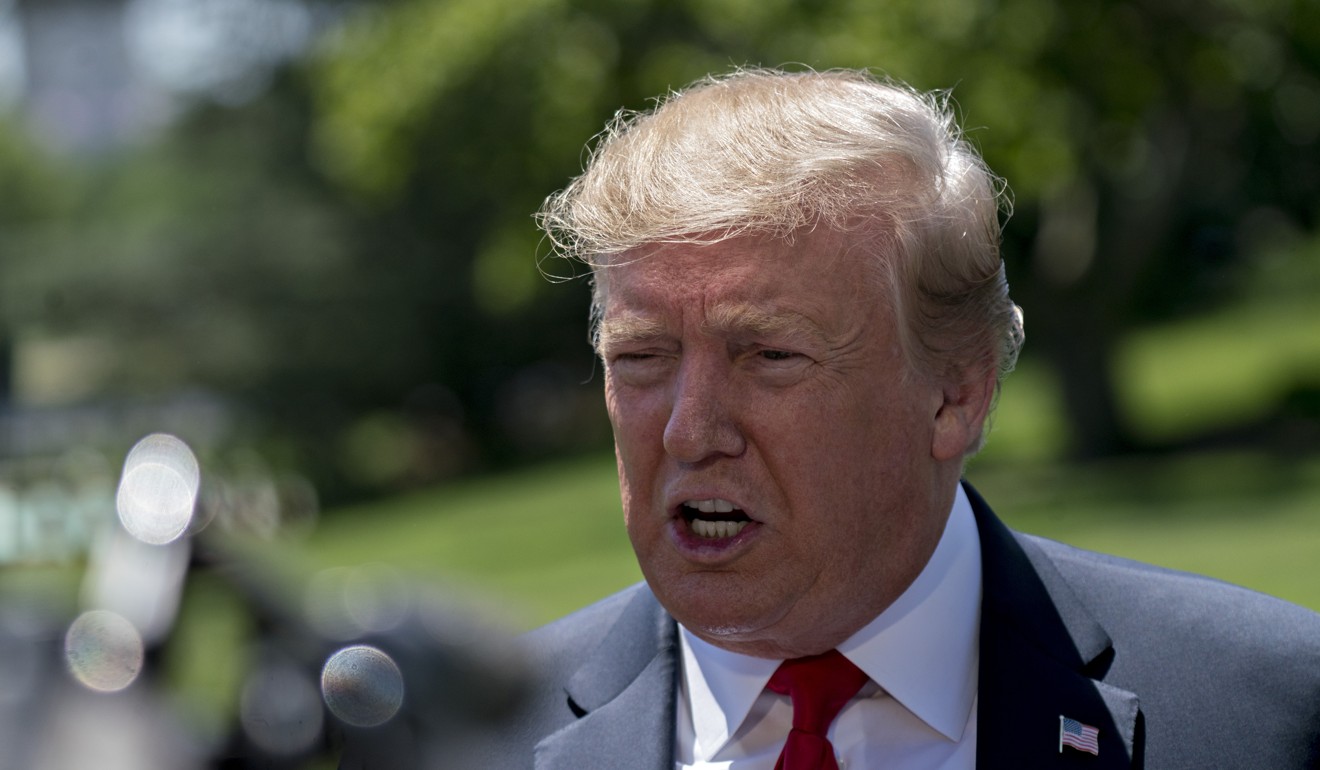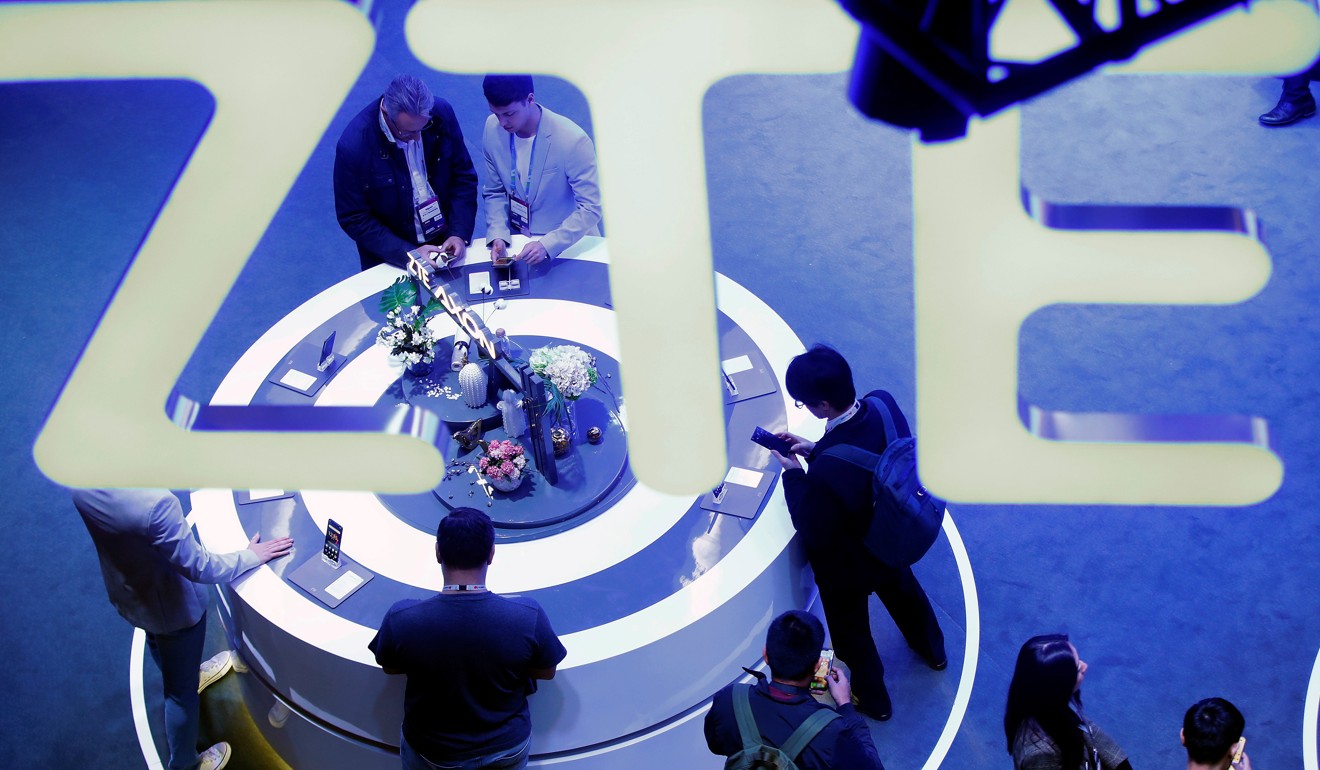Donald Trump’s Huawei crackdown could hit Trump country hardest
- Small, rural US wireless providers fear the president's approach could result in big costs

This story is published in a content partnership with POLITICO. It was originally reported by John Hendel on politico.com on May 24, 2019.
The fallout from US President Donald Trump's Huawei crackdown may fall hardest on his rural base, already suffering from his earlier aggressive trade moves.
The US Commerce Department’s decision last week to put the Chinese telecoms giant on a trade blacklist is causing panic among small wireless providers, many of them in Trump-friendly parts of the country, which have Huawei equipment in their networks.
And they warn they will face big costs, potentially hundreds of millions of dollars, if they have to rip out and replace it.
Amid industry lobbying, the administration gave US companies a 90-day reprieve for doing some types of business with Huawei, but a full ban looms as a possibility.
That could add to the harm that the blowback from Trump’s trade war has already inflicted in big swaths of Trump country – for instance, China’s retaliatory tariffs on US exports like soybeans and pork.
Most US farmers have continued to stand by the White House, despite already reeling from a multi-year decline in income and crop prices, but growing anxiety has prompted the administration to spend billions in direct payments to agricultural producers.
Similarly, lawmakers of both parties have called for providing US$700 million to help small telecoms companies caught in the middle of the Huawei fracas.
One example of the Huawei dilemma is Eastern Oregon Telecom, which covers a string of communities in the northeastern part of the state.
CEO Joe Franell said he originally bought the Chinese company's gear, including fibre broadband equipment, because it was 30 per cent to 40 per cent cheaper than other products on the market.
But he estimates the labour and engineering costs of pulling it out and installing new, more expensive parts, as he fears he may have to do in the wake of a US crackdown on Huawei, will run to about US$1.4 million.
“If I have to do it myself, it’s a one-year distraction,” Franell said. “When you’re a rural community that is really struggling, a year is a lifetime to wait.”
“I do think this, oddly enough, will impact the Trump-supportive areas of the United States more than the coastal areas,” he said.
While bigger carriers like AT&T and Verizon have avoided incorporating this gear into their domestic systems, Huawei has made inroads over the years selling network equipment to providers in remote and rural parts of the US.
Wireless company filings with the Federal Communications Commission indicate Huawei gear has gone into networks in states like Missouri, Wyoming, Kansas and Montana.
Huawei does business with around 40 companies across the country, said Carri Bennet, general counsel of the Rural Wireless Association, which represents smaller providers.
She said a dozen of her own group’s members use gear from Huawei and another Chinese telecom company, ZTE, and she estimates that replacement costs are likely to range between US$800 million to US$1 billion.
Bennet added that the disruptions involved in such network overhauls could ripple across businesses that rely on the carriers’ wireless service, from oil and gas production to ranching and farming. All of those sectors increasingly use internet-connected technology.
"You're not going to be able to say to someone, ‘You can't use a tractor for a year,’" she said.

Huawei appears to be well aware of this dynamic and is using it as a pressure point as it tries to stave off US restrictions.
"Because Huawei equipment is installed in dozens of 4G networks in underserved remote and rural parts of the country, a ban would prevent small, independently owned American telecom operators … from developing new services and delivering faster broadband connections to millions of people," Catherine Chen, director of Huawei's board, wrote in a New York Times op-ed last week.
“Instead, those operators would be forced to spend their limited funds replacing Huawei equipment with more expensive gear.”
Despite a 2012 House Intelligence Committee report cautioning that Huawei and ZTE represent a cybersecurity threat, a number of smaller providers said they had felt confident enough to do business with the companies.
Sagebrush Cellular, which covers 44,000 square kilometres (17,000 square miles) encompassing parts of Montana and some tribal areas, noted in a regulatory filing last year that it relied on the Agriculture Department’s classification of Huawei as an approved vendor as well as conclusions relayed by staff for Senator Jon Tester that there was no reason to hold off.
Trump himself has sent mixed signals about his intentions on Huawei.

Last week, he signed a long-anticipated executive order banning the purchase of communications technology from entities controlled by “a foreign adversary”, setting the stage for the government to block Huawei from 5G networks in the United States.
The Commerce Department separately put Huawei on its trade blacklist, saying it has reason to believe the company is involved in activities contrary to US “national security or foreign policy interests”. That reflected the longstanding views of US officials that Huawei could be a vehicle for cyber espionage.
But the president later muddied the waters about how serious he is about sanctions. After warning at a White House event Thursday that “Huawei is something that is very dangerous”, he suggested the company could be a bargaining chip in his talks with China, saying, “It’s possible that Huawei would be included in a trade deal.”
Amid the uncertainty, small telecoms companies are beseeching Congress for help, with another of their trade groups, the Competitive Carriers Association, huddling with Senators Marco Rubio and Mark Warner last week.
Warner, joining with other senators, including Commerce Chairman Roger Wicker, proposed a bill to set aside up to US$700 million to help these companies, drawing on funds raised from the government’s future auctioning of wireless airwaves.
“It’s a problem,” Rubio said in an interview this week. “They understand the national security concerns. I think from a financial standpoint, though – these are not big providers.”
“The cost of ripping that stuff out and putting compliant technology in is not insignificant, especially for them. So we’re going to have to do something about it,” he said.
Adam Behsudi and Eric Geller contributed to this report.